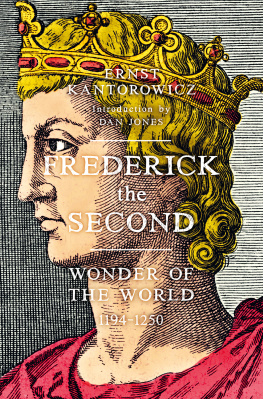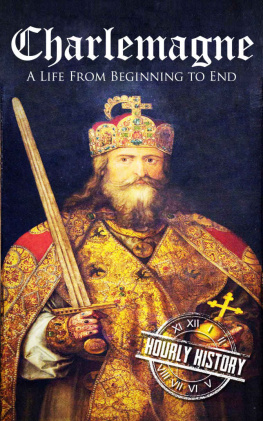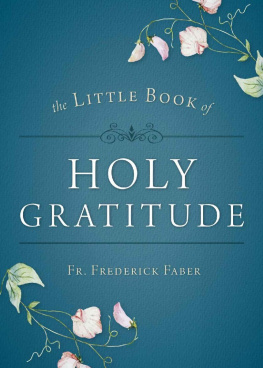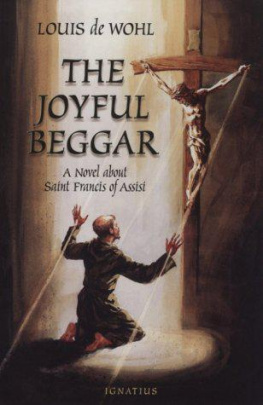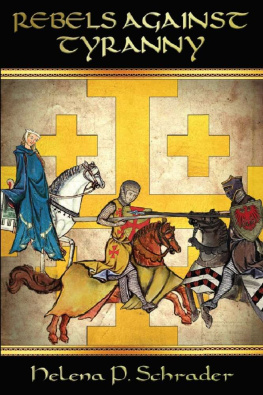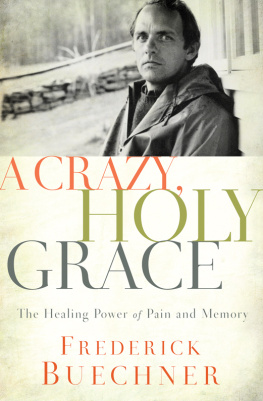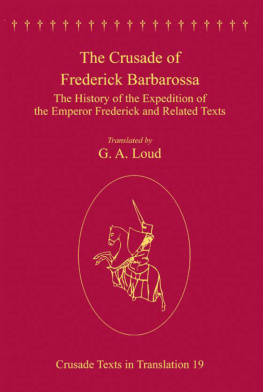Frederick
The Second
ERNST KANTOROWICZ (18951963) was a German-American historian of medieval political and intellectual history. He taught at the University of California, Berkeley, and was a member of the Institute for Advanced Study in Princeton.
FREDERICK THE SECOND
Wonder of the world: 1194-1250
Ernst Kantorowicz
AN APOLLO BOOK
www.headofzeus.com
Kaiser Friedrich der Zweite (Hauptband) first published
in 1927 by Georg Bondi, Berlin
This English translation first published in 1931 by Constable & Co
Authorised English version by E.O. Lorimer
This hardback edition published in the UK in 2019 by Head of Zeus Ltd
Copyright Klett-Cotta J. G. Cottasche Buchhandlung
Nachfolger GmbH, Stuttgart, 1927, 1994
Introduction Dan Jones, 2019
The moral right of Eric Kantorowicz to be identified as the author of this work has been asserted in accordance with the Copyright, Designs and Patents Act of 1988.
All rights reserved. No part of this publication may be reproduced, stored in a retrieval system, or transmitted in any form or by any means, electronic, mechanical, photocopying, recording, or otherwise, without the prior permission of both the copyright owner and the above publisher of this book.
A catalogue record for this book is available from the British Library.
ISBN (HB): 9781789540833
ISBN (E): 9781789540840
Design: Steve Marking
Cover images and endpapers: Alamy Stock Photo
Head of Zeus Ltd
First Floor East
58 Hardwick Street
London EC1R 4RG
WWW.HEADOFZEUS.COM
On Sunday 18 March 1229 Frederick II Hohenstaufen, Holy Roman Emperor, tyrant of Sicily, ruler of Italians and Germans and bane of the popes, marched into the Church of the Holy Sepulchre, snatched the crown of Jerusalem from the high altar and placed it on his own head. He was thirty-five years old: in the prime of his life and at the peak of his powers. This was, writes Ernst Kantorowicz, the most memorable self-coronation of an Emperor that the world was to see till the days of Napoleon. Like the little Corsican, Frederick had risen as if by sheer force of personality to stand, imperious and apparently invincible, astride the Western world. Unlike Napoleon, however, Fredericks personal imperium realized the greatness not of France, but of Germany.
Kantorowicz published Kaiser Friedrich der Zweite ( Frederick the Second ) in March 1927. He was 31. His whole academic career lay ahead of him, but in other areas of his life he was already a veteran. He had served with distinction in the First World War, being awarded the Iron Cross on the Western Front and the Iron Crescent in Anatolia. He had fought Communists during the uprisings in Germany that followed the war. Natty, snobby and obsessed with aristocrats, he had conducted love affairs with women and men, including the mistress of his commanding general in Asia Minor and a boggle-eyed young nobleman called Count Woldemar Uxkull, to whom Frederick the Second is dedicated. He had become a disciple of the nationalist poet-prophet Stefan George, an intolerant and charismatic maven whose devoted followers referred to him as Der Meister . He had never taken a single medieval history class.
Ahead of Kantorowicz lay escape from the Nazis and a distinguished career in American academia, which embraced him sometimes uncomfortably in exile. He would write two more, important, books: Laudes Regiae (1946), a composite study of liturgical acclamations of monarchy, and The Kings Two Bodies (1957), which examined medieval theories of statecraft. But he could not escape the work that made his name, even as he grew to regret it. Controversial in its historical methods, problematic in its politics and brilliantly, dazzlingly written, Frederick is a biographical epic in the old style: a masterpiece of grandiloquent, overblown prose steeped in learning broad and deep. It is both an inexcusable celebration of revanchist Teutonic autocracy, written by a young man who once stated that the highest goal of German foreign policy should be the obliteration of France, and a staggeringly great piece of writing. Neither of those things should overshadow the other.
The facts of Kantorowiczs life are so improbable as to defy easy summation. A minutely researched and highly favourable biography by Robert E. Lerner, published in 2017, should be consulted for the full story. Suffice it to say here that Kantorowicz was born in 1895 in Posen (Poznn) to a Jewish family of liqueur and cordial manufacturers. He fell into Georges orbit during his twenties, following the war, and it was the poet who encouraged him to write Frederick , envisaging it as one of a series of great man biographies that included works by other acolytes of the George circle on Nietzsche, Napoleon and Caesar. Kantorowiczs ultra-nationalism and yearning for the Kaiser at the time he wrote Frederick is impossible to deny; so is the fact that the first German edition of this book carried a swastika on the cover an emblem embraced by the publishing house, Bondi, for its oriental, spiritual origins but which in 1927 was obviously associated with Nazism. Adolf Hitler was said to have read Frederick twice. Hermann Gring gave Benito Mussolini a copy for his birthday.
But Kantorowicz was contrary to claims made by serious people, including the historian Norman Cantor no Nazi.
To Frederick. The man who rose to rule his world was born in Jesi, near Italys Adriatic coast, in 1194. His father was the Holy Roman Emperor Henry VI, and his mother Constance was queen of Sicily. His grandfathers, therefore, were Frederick I Barbarossa and King Roger II: a diabolical combination. The thought of a single king who could master the states above the Alps and below the central Apennines tortured the papacy throughout the middle ages. Frederick blond-bearded and somewhat cherubic in countenance grew up to give the nightmare human form. He was excommunicated four times; Pope Gregory IX spoke of him as the devil. Frederick thought himself not a demon that was a self-image dearer to his near-contemporary Richard the Lionheart but the lineal descendant of the Roman emperors a thousand years before him. Kantorowicz shared and entirely approved this view, and correctly understood Fredericks self-coronation as king of Jerusalem in 1229 as the logical end of his antique ambition, although as is the case throughout Frederick the Second , the scene in the Holy Sepulchre is presented in more than political terms.
For Kantorowicz Fredericks coronation on the very spot where Christ achieved his own crown that of martyrdom was the completion of destiny. Frederick the Second is distinguished (or, in the view of its critics down the years, fatally marred) by its jut-jawed anti-positivism. Myth, legend, prophecy, poetry, melodrama and fatalism are all marshalled alongside the more familiar tools of careful source analysis, charter-reading, chronicle-testing and diligent, methodical plod. In no sense is it the work of the cautious scholar who does his homework and nothing beyond. Frederick the Second begins by quoting Virgil. It ends with a lament for the once and future king. In the seven hundred pages that lie between we see at work a great historian who has bigger things than history on his mind. This is why Kantorowicz is worth reading. This is why he must be handled with care.
Frederick II Hohenstaufen was known by contemporaries as stupor mundi the wonder of the world. A renaissance man, we might call him, had he died in 1450 and not 1250. Besides being a mighty politician, a warrior, a negotiator, a tyrant and an emperor, he was an expert in falconry on which he wrote a definitive text and a polymath. His Sicilian blood and upbringing lent him a rare understanding of the Islamic world Latin chroniclers tutted at the sight of Saracen dancing girls in his entourage, but this was the man whose close relations with the Ayyubid sultan Al-Kamil brokered peace in the Middle East at the height of the Crusades. He was by no means a paragon of tolerance or multiculturalism. Quite the opposite: he forced the Jews of Sicily to wear yellow stars and conducted ethnic cleansing of the Sicilian Arabs. Nevertheless, it is salutary to consider that while successive popes threw Frederick out of the community of the faithful and Dante placed him among the heretics in Hell, today Frederick might well have been awarded the Nobel Peace Prize.

